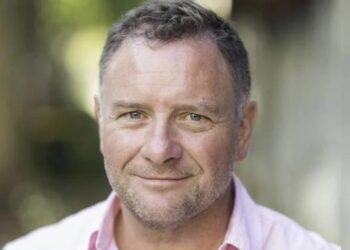Dow Jones global head of wealth and asset management Sterling Shea said that the Australian wealth management industry had suffered some damage but was fundamentally strong.
“You have a business where there has been reputational damage and a fundamental misunderstanding in the public but when you peel it back a little and you look at the high-level advisers, these are people with exceptional qualities running great businesses and providing excellent financial outcomes for their clients,” Mr Shea said.
Mr Shea said advisers would have to create scalable and better businesses to survive in the new environment.
“There will be fewer but probably bigger groups, we will see consolidation in the industry, but the level of quality will be better looking forward. The best people are going to be able to survive and thrive and add value,” he said.
Mr Shea said the great work of advisers has not been told to the investing public and the work of many was going unnoticed.
“Boutique and independent practitioners are building great businesses providing holistic advice and excellent investment processes on behalf of their clients but its undercelebrated and under-recognised,” he said.
Mr Shea said in the wake of the royal commission and scrutiny by the regulatory bodies and government, it would take some time to gain back that recognition.
“The good news is that it’s going to be a great opportunity for the best advisers and mediocrity gets exposed and puts money into motion,” he said.
“That flight to quality will benefit people who are already running great businesses and earning meaningful value for clients.”
The industry will rally behind forward thinking advisers, said Mr Shea, and others would get left behind.
“The industry, I believe, is going to rally around a group of smaller, forward-thinking, presumably better, advisers because the other ones are going to get weeded out in this cathartic change that has been brought about,” he said.
Regulators had a part to play in this as well and they had to create effective frameworks that advisers could follow, said Mr Shea.
“Effective regulation is best when its working in cohesion and in concert with the industry that knows what kind of structures are going to be necessary to enable good advisers to have great businesses,” he said.
However, if regulators created costly and difficult infrastructure that pushed aside advisers, that would not produce good consumer outcomes, said Mr Shea.
“If we create a regulatory framework that’s so onerous and so costly that it inhibits innovation and new entries and expansions in the business that’s not a great result for consumers,” he said.
Ultimately the advice industry would survive and thrive, said Mr Shea, but it would take time.
“It’s going to take time for the public to recognise there is no overnight fix to the reputational damage that has been done but over time the industry will rally around its best and highest quality producers,” he said.




Ha Ha Ha – best comedy piece yet! It should have read “great pro-bono advisers will thrive, Oh and of course the banks too”.
(Take 2 IFA!)
Jesus, I’m fed up with all these ‘experts’ coming out with their brilliant synopsis of how this industry will pan out in the future and what needs to be fixed to make it perfect.
FACT…while humans are involved in anything – including this industry, there will [b]never[/b] be perfection and there will [b]always[/b] be issues and problems. It’s just human nature and to believe otherwise is foolish and naive.
If any of these regulators actually bothered to take a look at some of online training content they force advisers to undertake now though, they’d see there’s an article that actually talks about how ethics can’t be taught or educated ‘into’ people because we all come from different backgrounds, have different upbringings, different standards and different motivations – and, all at different times in our lives.
I think it’s pretty clear from looking at how the private school educated CEO’s of the 4 major banks have conducted themselves recently, education definitely has no bearing on ethical behaviour! Just take a look at the conflicted remuneration push that’s coming from FASEA right now – these board members call themselves professionals!
But taking the sledgehammer approach that’s occurred the last 4-5 years to this industry is not the way to rectify these problems. The regulators and government have rocks in their head if they believe that. In fact, I absolutely guarantee it’s going to create bigger problems on a much grander scale.
When a minority of advisers should have been pulled up for doing the wrong thing years back and punished for their behaviour, they were overlooked in favour of the almighty dollar (again, as a consequence of human nature and greed). As a result, we now have an exodus of good quality advisors leaving the industry when they shouldn’t be – me now, included.
Putting all that aside and getting back to the main point of this article though, good luck to the remaining few advisors this article believes are going to be left to flourish once the exodus has finished though.
Compliance burden, overregulation, a lack of financial reward, unrealistic responsibility periods, ever increasing premiums and PI insurances, unfair regulator levies, no super, no sick leave / annual leave / or long service leave are all yours for the taking!!!
IE Rid the industry of as many already great advisers via stealth and outrageous fees and unnecessary education/course flogging and the remaining drones will be able to charge whatever they like. People who really do need help and advice won’t be able to justify or afford to seek advice.
Well done FPA.
i don’t think they have thought through this too well.
there will be a mass exodus of advisers, but that won’t just be limited to financial advisers, it will also involve accountants with limited AFSL’s and or who have a current AR status who will give up
initially, i thought there would be about a 5,000 left. but with the royal commission final report and the recommendations, i see no more than 1,000 and supply will be severely restricted for a very long time
its only nice for those very small minority will remain.
i suspect your correct.
Dow who ??????
Of course they will however question to ask is whether average Australians will be able to access (and afford) these planners
Has Mr Shea ever run their own FP business? Is he aware that their is more red tape than ever before, further restricting the ability for quality, ethical and client focused advice to be delivered in an affordable, scale-able manner?
The only winners (unfortunately) are going to be the banks. Just look at what happened to the ASX the day after the RC report was released.